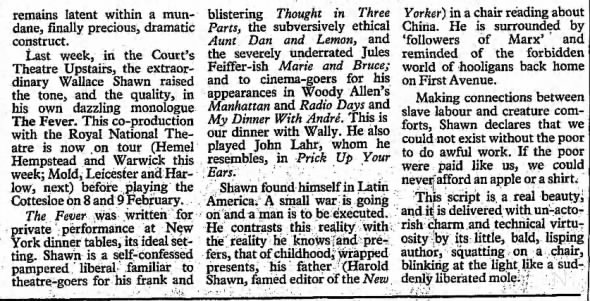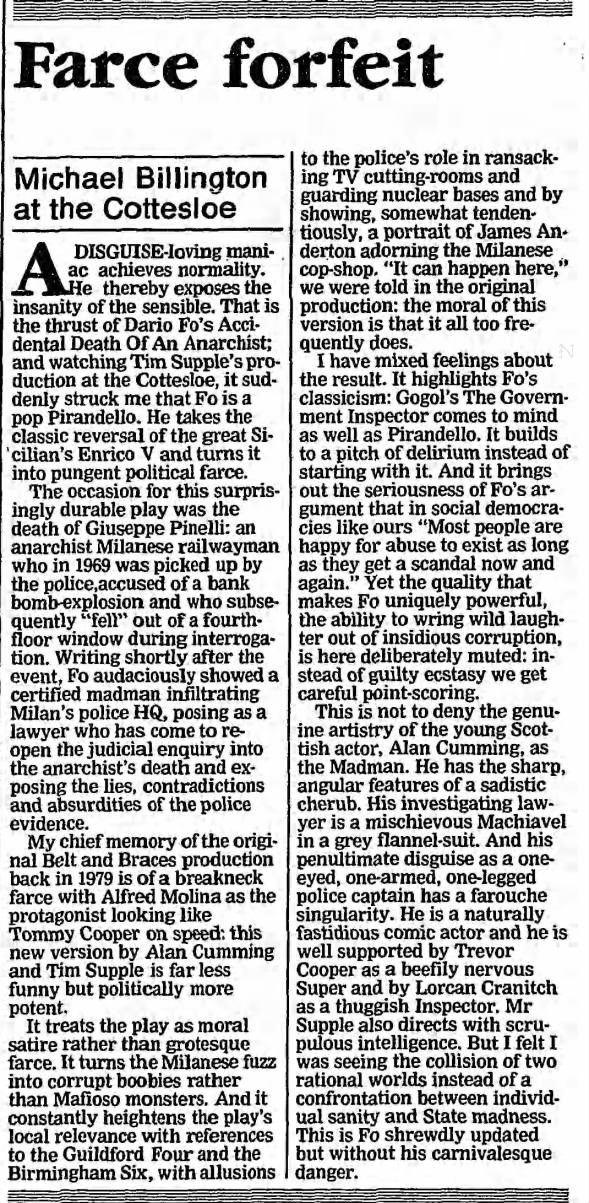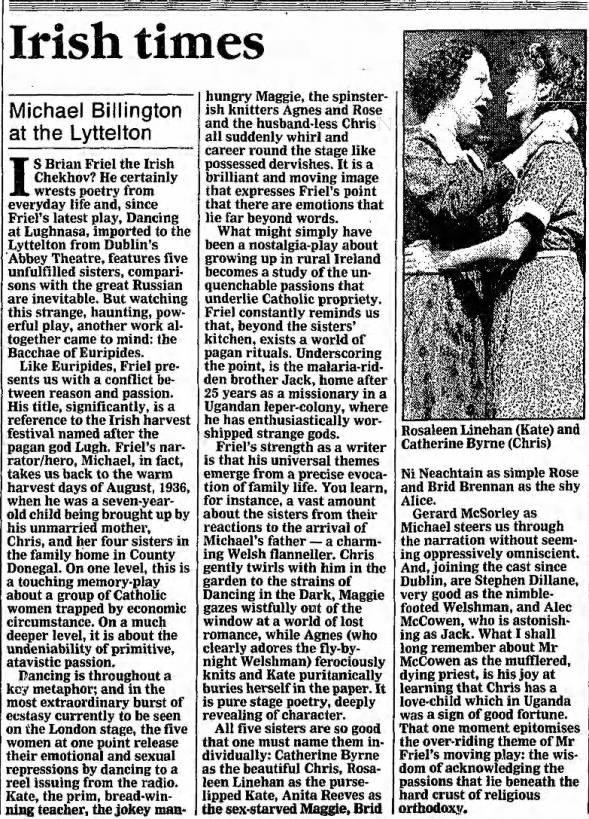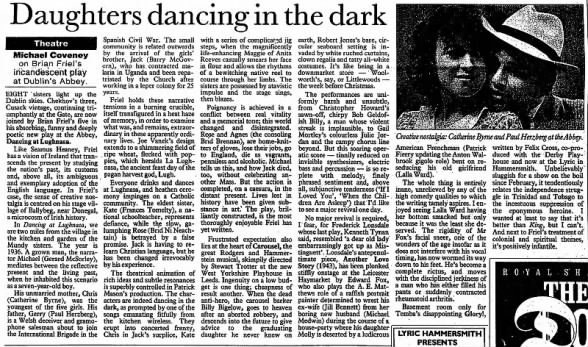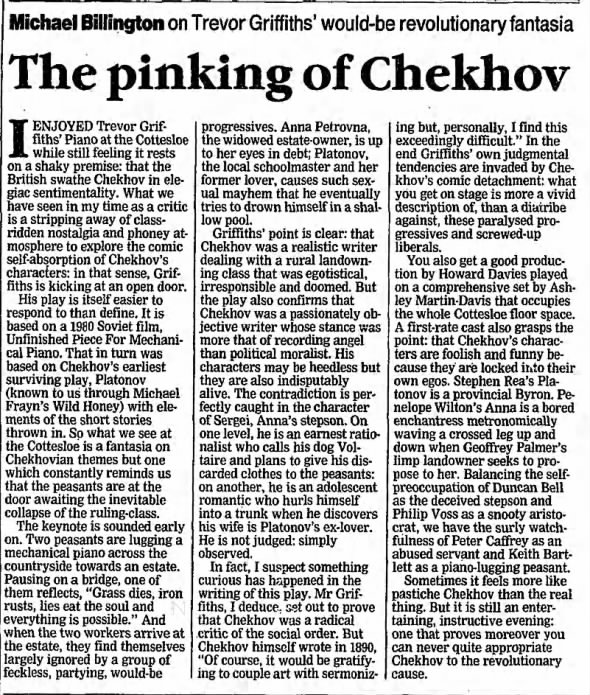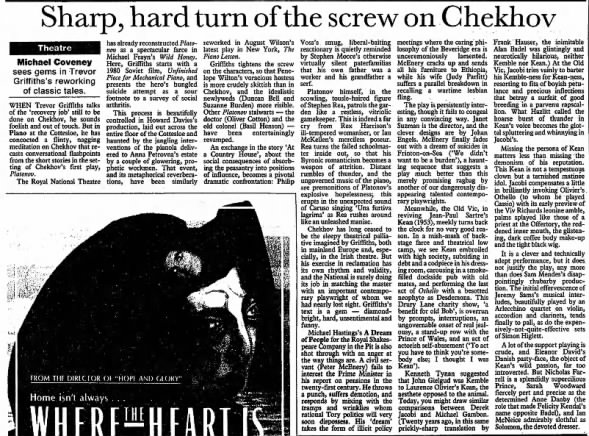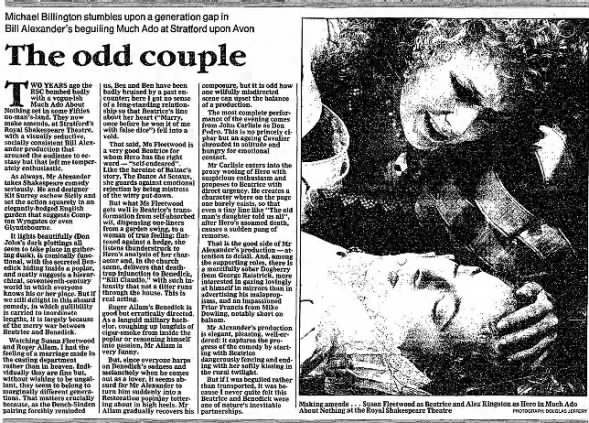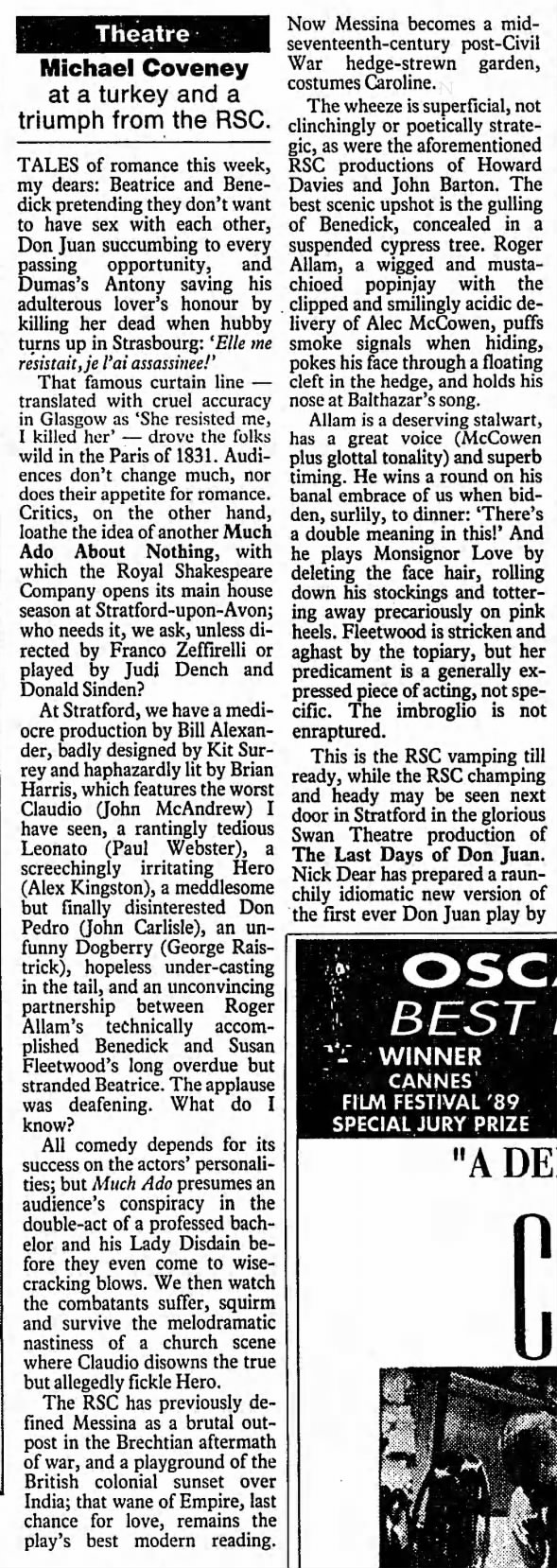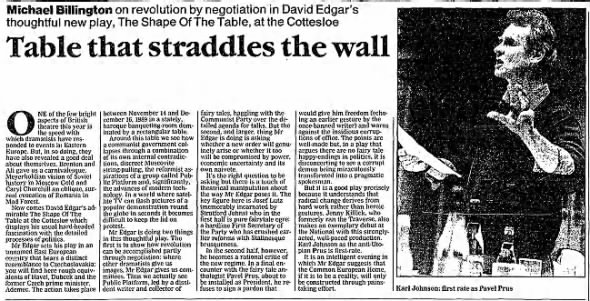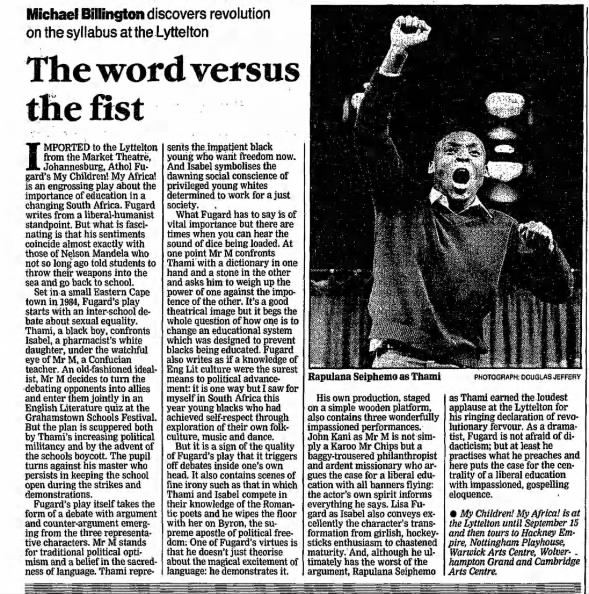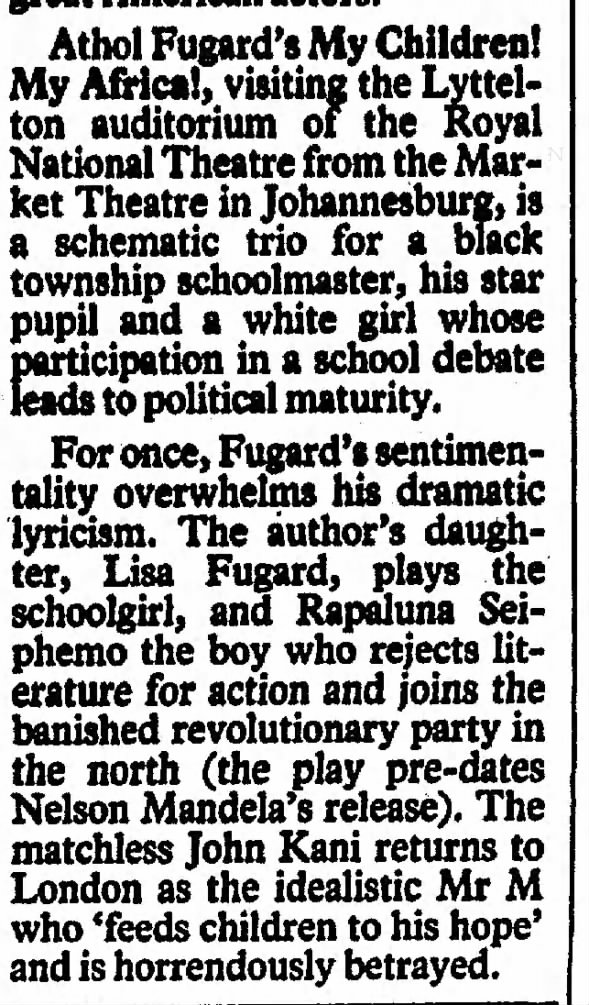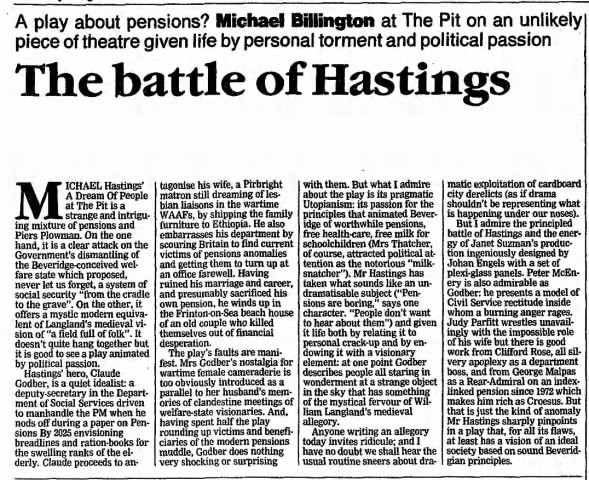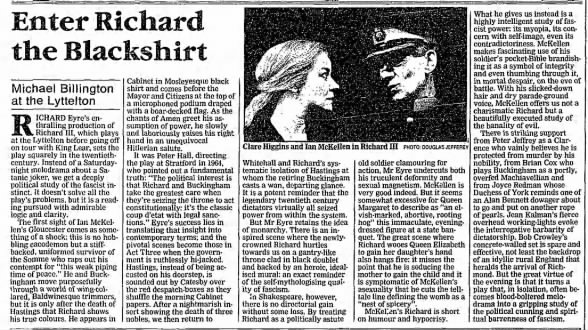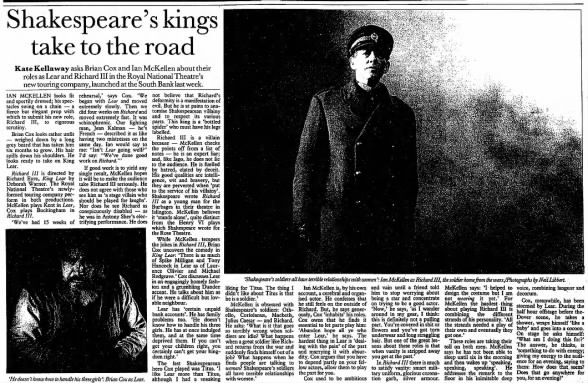I think this was my first encounter with Complicité, or Théâtre de Complicité as it was then known.
I saw this production with Bobbie Scully.
Superb
…was my verdict at the time and I do still remember this as an especially wonderful night at the theatre.
Complicité stalwarts were out in force; Kathryn Hunter, Marcello Magni, Simon McBurney (the latter also directed this one)…plus Jasper Britton, who I wouldn’t normally think of as a Complicité dude.
The Theatricalia entry for this production can be found here.
Michael Billington wasn’t 100% sure about it, admiring the style but suggesting that the style somewhat swamped the content:
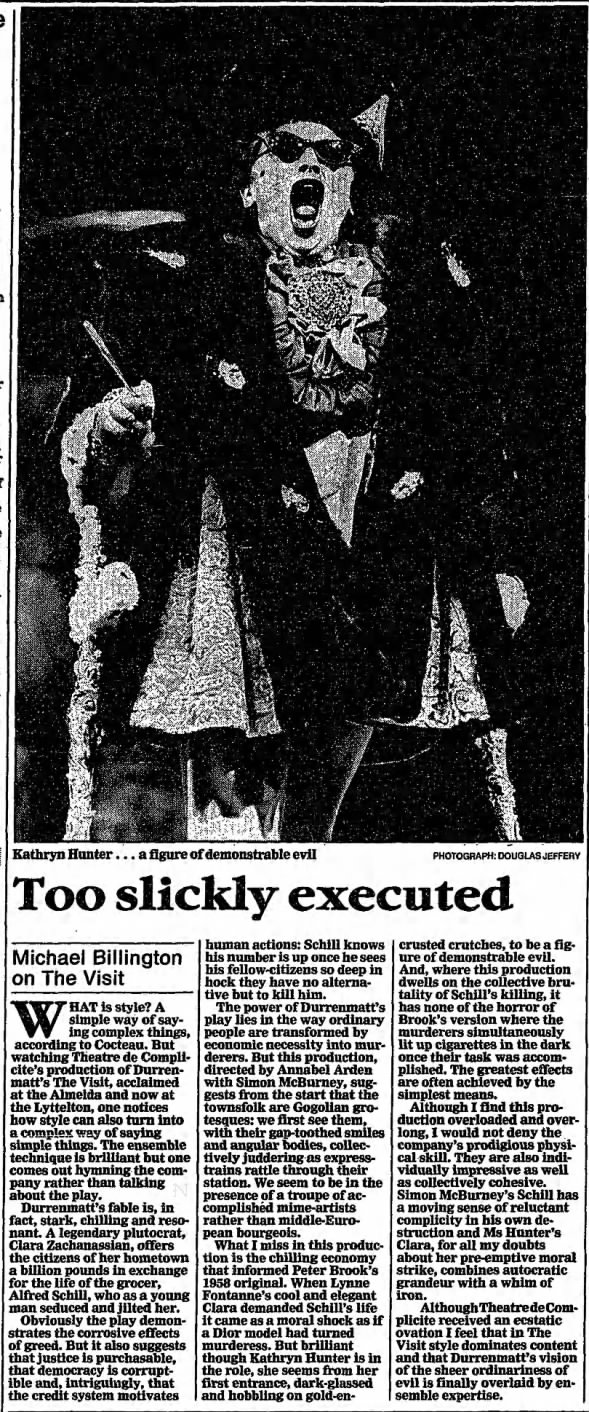 Billington on Visit Fri, Feb 15, 1991 – 35 · The Guardian (London, Greater London, England) · Newspapers.com
Billington on Visit Fri, Feb 15, 1991 – 35 · The Guardian (London, Greater London, England) · Newspapers.com
Kate Kellaway in The Observer didn’t like it either.
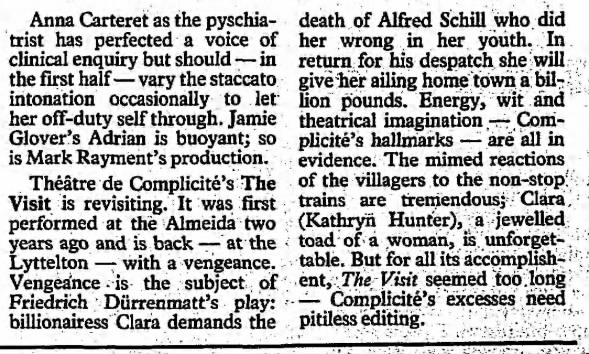 Kellaway on The Visit Sun, Feb 17, 1991 – 57 · The Observer (London, Greater London, England) · Newspapers.com
Kellaway on The Visit Sun, Feb 17, 1991 – 57 · The Observer (London, Greater London, England) · Newspapers.com
The critics were wrong and I was right, is all I can say!



